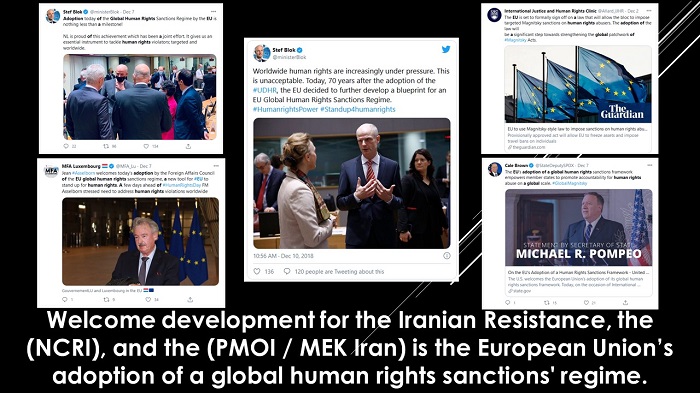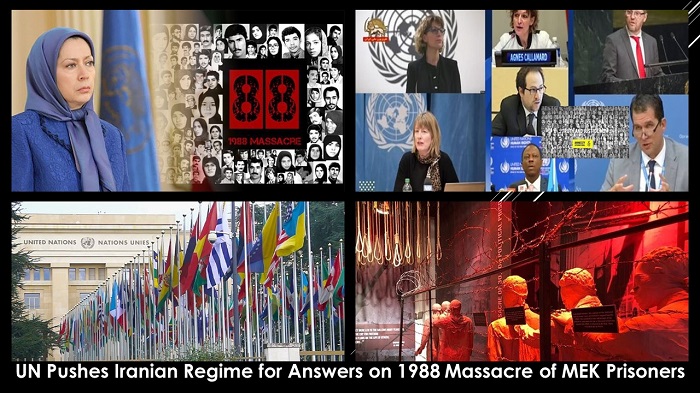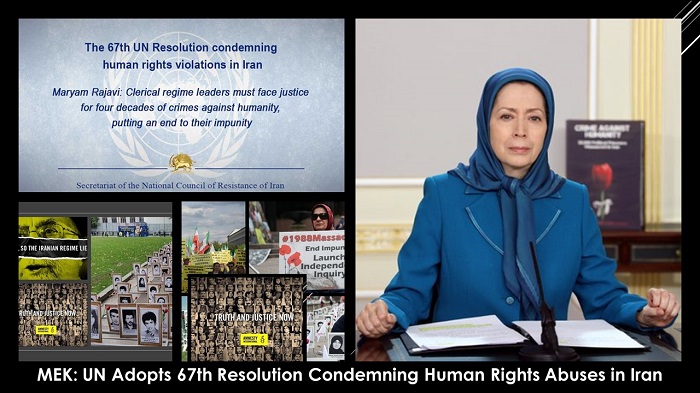
(PMOI / MEK Iran): Zam’s execution triggered condemnation from several European countries as well as the UN High Commissioner for Human Rights in Iran and the Special Rapporteur on Summary Executions.
On December 12, Iranian journalist Ruhollah Zam was executed by the Iranian regime for publishing a new site that was critical of the regime. Zam was given political asylum in France in 2014 but was lured to Iraq last year, kidnapped by Revolutionary Guards (IRGC) forces, and brought back to Iran to stand trial.
Zam’s execution triggered condemnation from several European countries as well as the UN High Commissioner for Human Rights in Iran and the Special Rapporteur on Summary Executions. The UN statement denounced the execution as “unconscionable” and added that “Iran must end its systematic use of the judicial process to impose arbitrary detention and death sentences against human rights defenders, journalists and other individuals who express dissent against the Government through the free exercise of their internationally-recognized human rights.”
#MEK and #NCRI reported that the response to the latest execution in #Iran of a French resident, Ruhollah Zam, by several European nations, including France, Germany, Italy, and Austria, withdrew from the Europe-Iran Business Forum. https://t.co/X1jRE40moy
— StopFundamentalism (@SFundamentalism) December 17, 2020
The Europe Iran Business Forum was also canceled as a result of Zam’s execution after European participants condemned the act and refused to be a part of the event. Although the cancellation was a welcome acknowledgment by European countries of the Iranian regime’s human rights abuses, event organizers announced days later that they planned to reschedule the forum at a later date, presumably after public outcry over this most recent atrocity has died down.
#BREAKING: The #EuropeIranBusinessForum has been postponed after execution of #RuhollahZam. This is a lesson to #Iran's regime that there is a cost for its malign behavior. pic.twitter.com/L6ZpVccrph
— Jason Brodsky (@JasonMBrodsky) December 13, 2020
The public rebuke seemed to have little effect on Iranian regime leaders. President Hassan Rouhani stated on Monday that he thinks it is “unlikely” that Zam’s execution will cause a lasting strain on Iranian-European relations.
Rouhani’s attitude is not unfounded. Historically, world leaders and international bodies have either ignored the regime’s human rights abuses or condemned them and taken no further action. This lack of accountability has emboldened the regime to continue to inflict countless horrors on its people in order to deprive them of their right to dissent.
"Rouhollah Zam's execution is a deadly blow to freedom of expression in Iran and shows the extent of the Iranian authorities’ brutal tactics to instil fear and deter dissent."https://t.co/DWvm7TxK2J
— amnestypress (@amnestypress) December 12, 2020
In the summer of 1988, regime founder Ruhollah Khomeini issued a fatwa ordering the execution of all the People’s Mojahedin Organization of Iran (PMOI / MEK Iran) political prisoners in Iran. Over the course of a single summer, 30,000 (PMOI / MEK Iran) supporters were executed in the 1988 Massacre and buried in unmarked mass graves. Many had already completed their sentences, and most had been imprisoned for peaceful activities.
To date, none of the perpetrators of this crime against humanity have ever been brought to justice, and a number of those who had key roles in the massacre have gone on to hold high-ranking positions in the regime. A group of UN human rights experts delivered a letter to the regime in September calling for an independent investigation into the massacre, but no further action has been taken.

(PMOI / MEK Iran): A group of UN human rights experts delivered a letter to the regime in September calling for an independent investigation into the massacre, but no further action has been taken.
This week the UN General Assembly adopted a resolution to condemn the Iranian regime for its human rights abuses. The resolution is the 67th such action against Iran by a UN body. The resolution called on the regime to release all of its political prisoners and specifically mentioned the November 2019 protests and the January 2020 protests.
While it is encouraging that the UN has once again condemned the regime for its human rights abuses, and it is a positive sign that the international community is becoming more aware of the anti-regime protests in Iran, the 67th resolution lacks the same thing the first 66 resolutions did: accountability. Asking the regime politely to release its political prisoners is no more effective than asking it to independently investigate its own crimes against humanity. If the international community is seriously concerned with human rights, it needs to take action.

(PMOI / MEK Iran): the 67th resolution lacks the same thing the first 66 resolutions did: accountability. Asking the regime politely to release its political prisoners is no more effective than asking it to independently investigate its own crimes against humanity. If the international community is seriously concerned with human rights, it needs to take action.
Diplomacy with Iran has failed. The regime uses its embassies to conduct terrorism, as was evidenced in the foiled terrorist attack on the 2018 Free Iran gathering by the People’s Mojahedin Organization of Iran, and the National Council of Resistance of Iran (NCRI), in Villepinte, France. The international community would do well to shut down the regime’s embassies and sever financial ties. Otherwise, it will continue on the same path of destruction and repression, and the world will be accountable.

(PMOI / MEK Iran): the impunity of Khamenei and other regime officials must end.
and People’s Mojahedin Organization of Iran – MEK IRAN – YouTube
